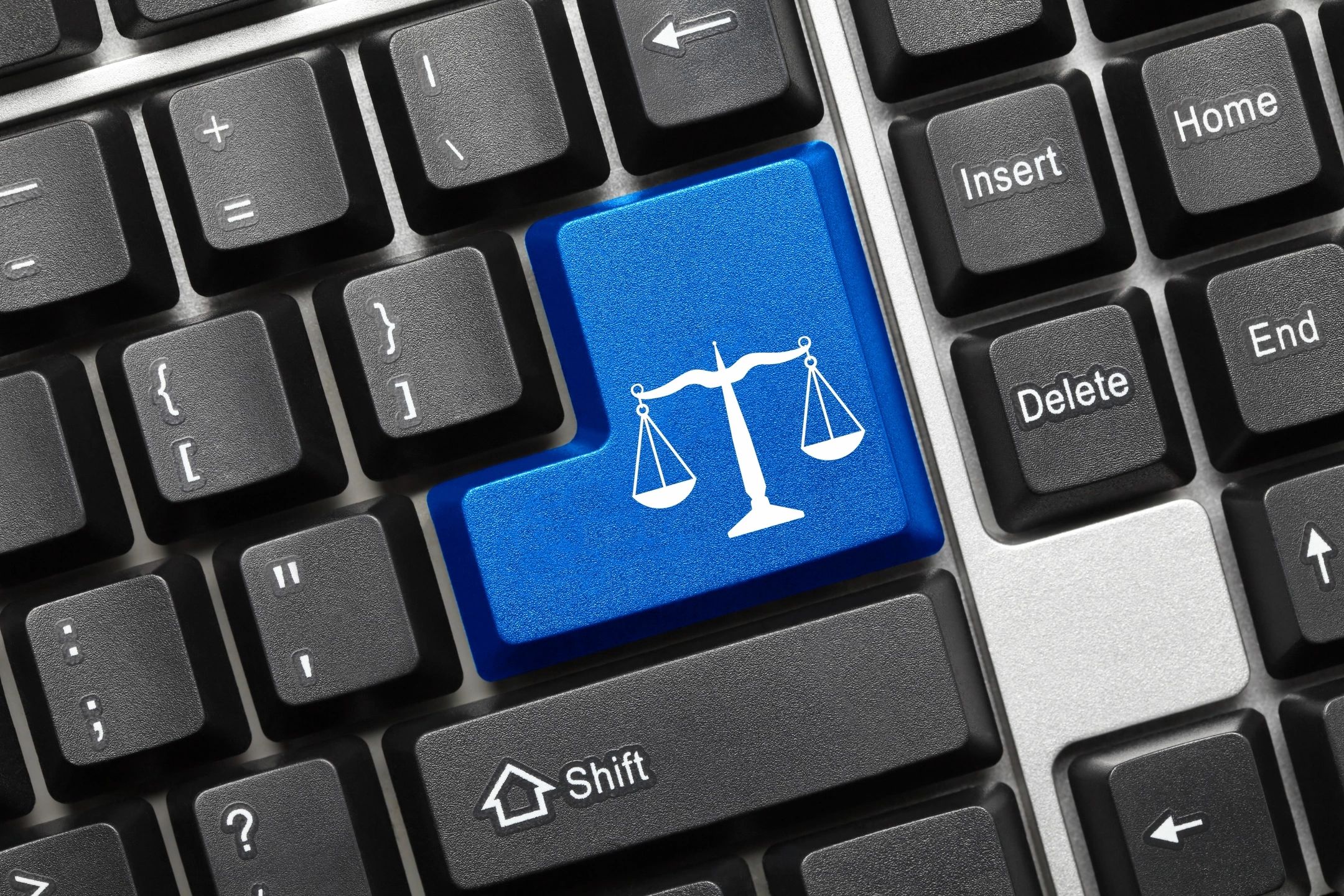Consideration and Protection to Avoid Copyright Infringement (Part 1)
Writers often want to include phrases from other writers in their own work, such as in epigraphs (a brief quotation of text at the beginning of a book or individual chapter to suggest theme), or quote a paragraph or memorable quote elsewhere because it was inspirational or meaningful. Some writers even attempt to have their characters relay material from other creators, but that does not make it legal.
In creating an original piece of writing, is it possible to quote lyrics from a song, or include a stanza from a famous poem (or even an entire poem), or borrow a catchy line of dialogue from film, or use a wonderful section of text from another writer’s published work?
Whether taken from a book, television, or from popular quotation engines—which are not always accurate—borrowing words can be dangerous. More often than not, quoting another’s creation is not legal without first obtaining permission.
Some writers steal words and slide under the radar, ignorant to the laws or not, but copyright infringement is an ugly and incredibly expensive beast. The risk should always be avoided.
Want to quote a line from “Hey Jude” by the Beatles, or a few lines of poetry from Robert Frost, or include a famous line from a television series or movie?
Be prepared to pay a hefty fee, fine, or risk a lawsuit for copyright infringement.
What is Copyright and Who Can Own It?
According to copyright.gov, copyright is “originality and fixation,” a type of paraphrasing that can get a writer in trouble if not considered fair use. Copyright is thus an intellectual property to protect “original works of authorship” the moment the work is “fixed” in “a tangible form of expression.”
Original works are independently created (or co-created by more than one party) with at least a minimal degree of creativity. It is something formed without copying. For a work to be considered created, there must be some form of “spark” and “modicum” of creativity involved, so says the Supreme Court in past copyright infringement cases.
Consider Vanilla Ice’s song “Ice Ice Baby,” which left a mark on popular culture. The song also “sampled” the base line from “Under Pressure,” another hit song by Queen and David Bowie. Robert Matthew Van Winkle (aka Vanilla Ice) was sued soon after the release of his song. His “original” base line simply added a single note at the end of the riff in order to make it unique. The case was settled out of court for a large sum of money, the extra note deemed insufficient for the work to be considered original. If a single note of a popular base line in a song is untouchable, what might that mean for written works?
Fixed works are created under the authority of the author in a “fixed” medium, such as being written down in a book or recorded by other means, published or not. Any single person, or even multiple persons, can own a copyright. As soon as something original is created and then fixed (no matter the medium), that person, or persons, own(s) the copyright.
Companies and organizations other than the creator can be copyright owners if the work was made for hire. For instance, if John Doe works as a columnist for The Writer Life, copyright ownership of anything published The Writer Life would most likely reside with The Writer Life.
When writing independently, copyright ownership starts with the author and stays with the author long after death, and even longer if renewed by their estate. If artwork is published by a more traditional press, the publisher most likely owns and controls copyright until it expires, with the author owning little to nothing.
What Constitutes Copyright Ownership?
The U.S. Copyright Office states that “copyright infringement occurs when a copyrighted work is reproduced, distributed, performed, publicly displayed, or made into a derivative work without the permission of the copyright owner. “ The Copyright Act of 1976 is a long and incredibly confusing article to digest, so, simplified, what constitutes ownership? (1)
Once an original work is created (unless contracted “for hire”), whether fiction, nonfiction, poetry, a blog article, a recording of a song, a podcast, a taken photograph, a drawing / painting, or whatever it may be, ownership belongs to the creator at the moment of creation, not after the work is published. The copyright act also extends to all “original works of authorship,” which considers any new type of media that develops. (2)
The above two paragraphs, for example, were created with original intent, but with a lot of influence from articles published by the U.S. Copyright Office, hence the need for citations. If nothing were researched before or while writing this article, and the information was something more commonly known or “old news” (ice is cold, sharks cannot swim backward), citations would be unnecessary.
There seems to be much concern over copyright ownership with writers. Novice writers tend to ask early on, “How do I protect myself from another person stealing my work?” while at the same time also wanting to borrow another’s words to use alongside their own.
Most use laptops or other electronic devices to create, so the moment something new is created it is time-stamped along with other collected date, thus protected. Sending an email is timestamped. Taking a digital picture is timestamped. Posting on the internet (social media, blog article, uploading a photo, posting a comment) is timestamped, and regularly includes metadata such as an IP address—a unique string of characters that identifies each device using the Internet Protocol to communicate.
When typewriters or handwriting were commonly used to create original work, copyright concerns were more of an issue. Authors even went as far as physically mailing physical copies of their manuscripts and leaving the package unopened with its government postmark to prove ownership and date. Today, copyright for “creators of origin” is less of a concern because of modern technology and the internet.
A digital copy of a manuscript contains enough code buried inside the file to prove one’s ownership (metadata). A completed manuscript could likewise be uploaded to a secure storage site, or emailed to the self to force a timestamp and produce metadata, but not even that is needed to prove ownership.
Once a creation is shared publicly on the internet, it is considered “published.” This is important when dealing with written work. If hosting a series of blog articles or essays on a website, for example, and later compiling those individual writings into a book, the writing within that book is considered “previously published,” the same way a self-published book would be considered previously published if attempting to sell to a traditional publisher.
What Cannot Be Copyrighted?
In terms of books and writing in general, the basics of what does not fall under copyright protection are titles, names, short phrases, and slogans. According to the U.S. Copyright Office, the following expanded list of items are not protected under copyright law (3):
- Ideas, methods, or systems: making or constructing things, scientific or technical methods / discoveries, business operations / procedures, mathematical principles, formulas or algorithms, as well as concepts / processes / methods of operation.
- Commonly known information: vague phrases with no known authorship (cliches) such as the “the ocean is deep,” or “the sun is hot” as well as calendars, charts pertaining to weight or height, phone directories, rulers or other measurements, or lists / tables from public documents.
- Choreographic works: original or not, they are not subject to protection unless recorded or notated, as well as speeches or other such things not transcribed before or after the performance.
- Names, titles, short phrases, or expressions: while not protected (other than with trademarks pertaining to business), this also includes descriptions, pseudonyms (fictitious names), and business names; it also includes recipes, formulas, compounds, prescriptions, or ingredient listings.
- Fashion: “useful articles” such as clothes not pertaining to visual arts or fashion (clothing and accessories) is also not protected, although fabric patterns used in clothing are; however, unique designs can be patented.
If a writer wants to reference a band name or a song title in their work, those are fair game. The same goes for titles of published works (books, albums, essays, etc.) and author names.
Likewise, if a writer wants to include a publicly known place such as a restaurant or hotel, street name, or building, or a public figure (President of the United States, basketball player, musical artist, etc.) they are also fair game, but consider how they are used in the writing. If described with mal intent or if negatively portrayed, how might it be damaging to others, or seen as damaging? But even if what is referenced is with good intentions, precautions must be taken to protect the writer.
After all, whatever may have inspired one’s writing is not as important to the reader (or meaningful at all) as it was to the writer when creating the work. Inspirational words may have helped define a book or chapter’s theme, but if originally used to determine theme, wouldn’t that come across through the writing and no longer be needed?
1. U.S. Congress. United States Code: Copyright Office, 17 U.S.C. §§ 201-216. 1958. Periodical. https://www.loc.gov/item/uscode1958-004017003.
2. U.S. Congress. United States Code: Copyright Office, Copyright Infringement and Remedies, 17. §§ 501-510. 1982. Periodical. https://www.loc.gov/item/uscode1982-007017005.
3. Whaite, Freya. “Self-Plagiarism: When Recycling Your Own Work Can Get You into Trouble.” MyLaTrobe. La Trobe, September 7, 2022. https://www.latrobe.edu.au/mylatrobe/self-plagiarism-when-recycling-your-own-work-can-get-you-into-trouble.
Michael Bailey is a Senior Editor and the Head of Developmental Editing at Manuscripts, LLC. He is a recipient and nine-time nominee of the Bram Stoker Award, a four-time Shirley Jackson Award nominee, and a multiple recipient of the Benjamin Franklin Award, along with over thirty independent publishing accolades. He has written, edited, and published many books. His latest is Righting Writing, a nonfiction narrative about dedication to the craft. He is also the screenwriter for Madness and Writers: The Untold Truth, a creative documentary series about writers. Find him online at nettirw.com, or on social media @nettirw.













